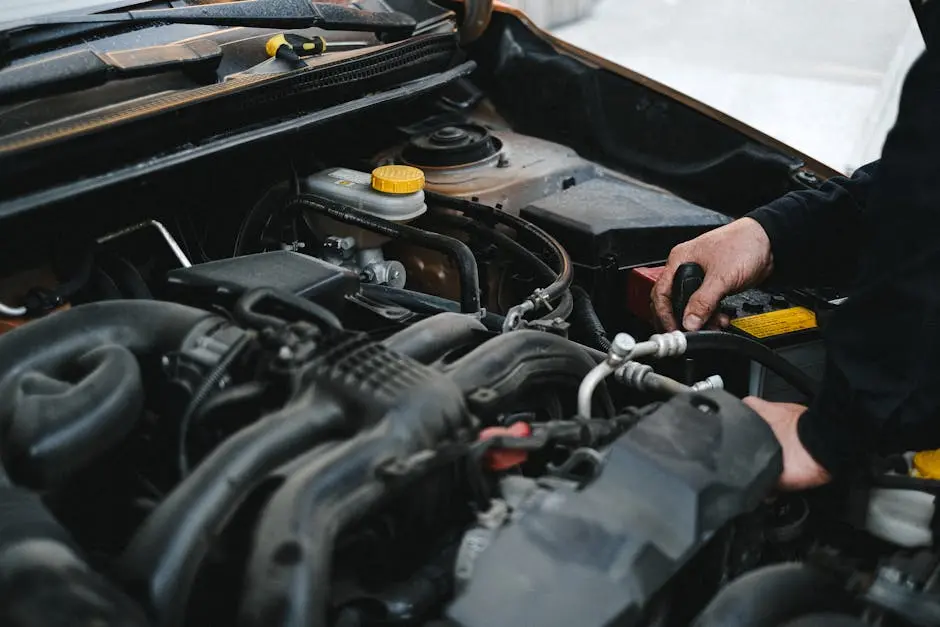7 Essential Pressure Testing Techniques for Ensuring Engine Efficiency in Los Angeles
Maintaining engine efficiency is crucial for performance, especially in the bustling city of Los Angeles. Pressure testing techniques play a key role in identifying potential issues and ensuring everything runs smoothly. In this article, we'll explore seven essential testing methods that can help keep your engine in peak condition and save you from costly repairs down the road.
1. Understanding Pressure Testing Basics
Before diving into specific techniques, it's essential to grasp the fundamentals of pressure testing. This method assesses the integrity of your engine components and helps identify leaks or weaknesses that could lead to inefficiencies.
Every engine is a complex puzzle, and pressure testing is like having the solution in hand. It gives you insights into how different parts interact under stress. Understanding the basics means you're better equipped to recognize what these tests are revealing, ensuring that your engine operates at its peak.
2. Utilizing Vacuum Testing for Early Detection
Vacuum testing is an effective way to evaluate the condition of various engine components. It reveals potential issues such as worn gaskets or valves, allowing you to address them before they escalate.
This technique, while straightforward, can uncover problems that might not yet be apparent during routine inspections. Think of it as a proactive approach—just like visiting the doctor for a check-up before any illness develops. A vacuum test can save you time and money in repairs down the line.
Additionally, recognizing how vacuum levels correlate with engine efficiency is crucial. A sudden drop in vacuum pressure indicates a problem, prompting you to investigate further. With any luck, you'll catch these issues during routine maintenance, ensuring your engine remains as efficient as possible.
3. Exploring Compression Testing Techniques
Compression testing measures the pressure produced within the engine cylinders, offering insight into combustion efficiency. By regularly performing this test, you can catch problems with rings or valves early on.
An engine that's out of alignment might result in uneven compression, which is like trying to ride a bike with one wonky tire—you’re going to wobble. Compression testing gives you the clarity you need to identify these issues before they morph into larger, costlier problems.
Moreover, documenting compression readings over time can provide a reliable performance history of your engine. It's akin to using a diary—keeping track of your vehicle's health will empower you to make informed decisions about repairs and maintenance, ultimately ensuring longevity.
4. Emphasizing Leak Detection Methods
Detecting leaks is vital for engine health. Techniques such as smoke testing help identify leaks in the air intake system, ensuring that your engine runs efficiently and reduces unnecessary fuel consumption.
Consider this—fuel is expensive! Using smoke tests or other leak detection methods can ultimately save you cash by pinpointing where your engine may be losing power without you even knowing. Don’t let a small leak turn into a big expense.
Furthermore, mastering these leak detection strategies ensures you maintain peak performance within your engine. Think of your engine as a finely tuned orchestra; each leak is like a musician playing out of sync. Finding and fixing these leaks will make sure your vehicle runs in harmony and maintains efficiency.
5. The Role of Cooling System Pressure Tests
Your engine's cooling system is crucial for maintaining optimal temperatures. Pressure tests in this area can help identify leaks or weaknesses in hoses and connections, preventing overheating and potential damage.
Imagine you are on a hot summer day, stuck in Los Angeles traffic, and your engine begins to overheat. The anxiety that comes with it is immense! Preventive pressure testing can help mitigate such stress. By ensuring your cooling system is sealed tight, you'll enjoy peace of mind knowing your engine can handle the heat.
Additionally, regularly testing the cooling system can inform you about the overall health of your vehicle. It’s similar to checking the oil level or tire pressure—by consistently monitoring, you can preempt failures before they occur, keeping your vehicle’s life intact.
6. Integrating Exhaust System Testing
The exhaust system significantly impacts engine efficiency. Utilizing pressure testing here can reveal blockages or leaks, ensuring your engine breathes efficiently and meets emission standards.
Blocked exhausts not only reduce performance but can also cause harmful emissions—something we all want to avoid in a city like Los Angeles! A thorough exhaust system pressure test can be the difference between a smooth ride and a costly repair.
7. Adopting Routine Testing for Lasting Performance
Incorporating these pressure testing techniques into your routine maintenance checklist can lead to lasting performance improvements. Regular assessments will help keep your engine operating at its best, saving you money and time.
Think of your car as part of your lifestyle in Los Angeles. Ensuring its efficiency is not just about saving fuel—it's about enhancing your overall driving experience. Regular pressure testing makes sure you're not just getting by but thriving on the open road.
Lastly, establishing a routine is key. Just like you wouldn't skip your annual health check-up, your engine deserves the same commitment. By integrating these methods, you can enjoy a reliably efficient performance that stands the test of time.

